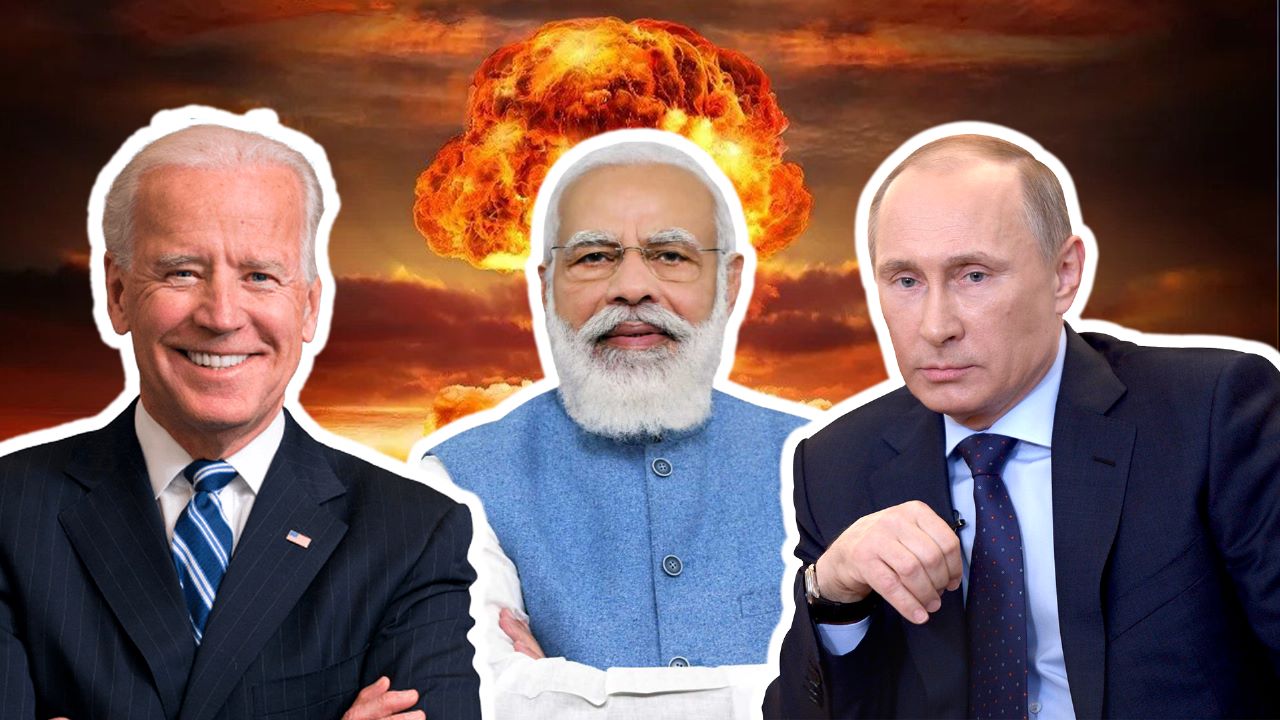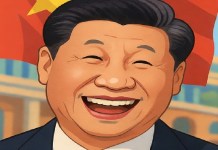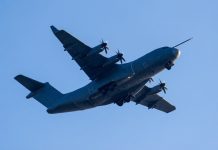India and Russia (erstwhile Soviet Union) have been warm and trustworthy friends since the former attained independence in 1947. Russia has always considered the partition of India as part of the colonial policy of “divide and rule.”
Did India become a sovereign state after independence? It is still hotly debated in knowledgeable political circles. Historians tell us that friendship and cooperation are based on some fundamental principles and values that States need to follow and should not be subservient entirely to this or that political ideology.
Russia, too, has been a colonial power under the Czars, and India has been a colony and subjugated nation for several hundred years. In 2014, when the Modi-led NDA government was formed in New Delhi, the Washington Post wrote in the banner line: “India gets a nationalist government after a long spell of colonial rule.”
The erstwhile Soviet Union showed many favors to independent India. She provided her with political, technological, infrastructural, and developmental support. In particular, the Soviet Union contributed to the modernization of defense services on a large scale.
The Soviet Union’s valuable contribution to the overall development of post-independence India is historic. The Soviet Union exercised the right to veto three times in the Security Council on the Kashmir issue.
In the Bangladesh War of 1972, the Soviet regime of the day lost no time in despatching its naval warship to the Bay of Bengal to boost India’s military action against Pakistan’s war in Bangladesh.
In international strategies, India has taken care not to offend Russia or take a stance that would complicate Russia’s position. This was possible only when the relationship was based on historical realities, values, and the law of natural justice.
The West always considered India part of the socialist block. This deprived us of an opportunity for a quick transition to a modern and technically advanced nation because the West was not prepared to transfer technology to India.
Except for defense equipment, the Soviet Union was not technologically as advanced as the West was. Consequently, our transition to the era of technological advancement was delayed.
Post-Implosion Of Soviet State
The Soviet Union collapsed in 1991. Despite many hindrances, which nations are forced to take cognizance of, both countries tried not to halt the nature and scope of bilateral cooperation established over many decades.
India, depending on its resources, steadily continued its march towards scientific and technological advancement, re-setting its relations with most countries in all the continents, expanding its trade, and taking an active part in international affairs of common interest. New Delhi received full support from Moscow.
India’s No To Condemnation Resolution On Russia
The two countries trusted their cordial relationship. India did not join the Western block denouncing Russia for its military action in Ukraine. India had to meet a barrage of criticism for declining to sign the condemnation resolution at the UN.
The reason for India not to sign was not to repay the debt of gratitude for the largesse of Russia. No, that is not the correct analysis. India wanted to convey a message to the Western powers that, firstly, carving out military blocs like NATO was detrimental to international peace. Secondly, patronizing a proxy on the western border of Russia was a provocative act that no sovereign country, much less a superpower, would tolerate.
India had the conviction and did not hesitate to invite the displeasure of the US and some of its European allies. India emphasized that instead of exacerbating the tense situation by supplying massive war materials to Ukraine, the right thing to do was to stop stoking the Ukrainian fire flames.
India Talked Of Values
It has to be noted that while declining to sign the condemnation resolution, India, nevertheless, bluntly told President Putin during a meeting on the sidelines of SCO in Samarkand: “Your Excellency, you know this is not the era of war.” This cliché became viral, and diplomats have quoted it umpteen times during their official parleys.
Much can be read in this cryptic sentence. Essentially, the purpose is to convey that disputes must be resolved through negotiations, not muscle power.
The question is, why is India confused by the statement of President Putin on the conflict that erupted on October 7 in the Middle East? India expected Moscow to condemn Hamas’s brutal and barbaric attack on Israeli civilians. But side-tracking the crux of the issue, President Putin harped on the formula of two independent states of Palestine and Israel.
The formula has been making rounds in major international political circles. By and large, there is a substantial convergence of opinion among many world leaders on this formula. World opinion has not underestimated the strength in the essence of the formula.
However, three entities must be considered and dealt with based on merit: Palestine, Hamas, and Gaza. The Palestine Authority is very much in place, and the Gaza Strip sits on legal crutches forged through some agreements between the two.

Russia Should Talk About Terrorism
But the case of Hamas is quite different. Put bluntly, Hamas is a diehard terrorist organization created, supported, and financed by Iran. This country has vowed to demolish the Zionist State because the Arab Islamic states have failed to translate the Quranic injunction into practice.
By brazenly extending an existential threat to Israel, Iran is violating the UN Charter of which she is a signatory, the Geneva Convention, international law, and the natural law of justice.
It is a deep terrorist organization closely associated with the regime of the Iranian Ayatollahs. Its volunteers and suicide squads receive training, arms, and ammunition from Iran via clandestine routes.
It has turned the Gaza Strip into a virtual war zone by constructing several hundred km of tunnels to transport arms and ammunition to various terrorist posts. Its armory has rockets, missiles, bombs, rocket launchers, and chemical weapons.
We do not need to tell President Putin about the barbarity and bestiality unleashed by the assaulting Hamas gunmen against Israeli kids, women, youth, and senior citizens. A parallel of these atrocities is only found in the annals of Chingiz Khan’s expeditions.
The Hamas murderers deserve to be condemned most sternly for crimes against humanity. Alas! Moscow has not turned its attention to this reality. This is even though Moscow has also faced spate after spate of terrorist attacks in Chechnya, the Caucasus, Uzbekistan, and elsewhere. It also has urgently worked on how counter-terrorism mechanisms should be devised.
Moscow has indirectly articulated a willingness to compromise with Islamic terror by not condemning Hamas for its brutalities. It pains New Delhi, considering that India has been facing the brunt of jihadist terrorism for nearly three decades and half in Kashmir and elsewhere. President Putin’s lop-sided statement on Hamas has made Prime Minister Modi speechless.
In the final analysis, we would like to draw President Putin’s attention to the fact that the masters of Hamas proxy are now emboldened to appear in public and assert the supremacy of their faith worldwide.
Hopefully, he will have seen the footage of millions and millions of Muslims bringing out massive demonstrations in almost all major cities with the war cry “Christians after the Jews.” We firmly believed that Russia would be the last of the world powers to fall into the trap of political expediency over the value of human life.
- KN Pandita (Padma Shri) is the former director of the Center of Central Asian Studies at Kashmir University. Views Personal.
- Mail EurAsian Times at etdesk(at)eurasiantimes.com
- Follow EurAsian Times on Google News




